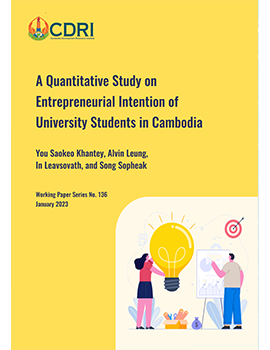
A Quantitative Study on Entrepreneurial Intention of University Students in Cambodia
This study explores the entrepreneurial intentions of Cambodian university students and the factors influencing their aspirations to pursue entrepreneurial careers. Drawing on survey data from 834 students across 19 higher education institutions, the research examines students’ career planning, business engagement, and exposure to entrepreneurship...
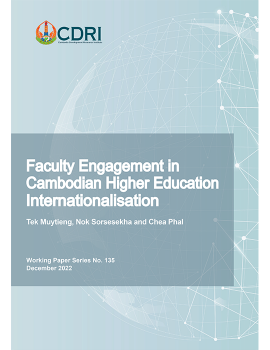
Faculty Engagement in Cambodian Higher Education Internationalisation
This study investigates the engagement of faculty members in the internationalisation of Cambodian higher education institutions (HEIs). Drawing on qualitative data from interviews with 49 faculty members and university administrators across eight HEIs, the research explores faculty attitudes, participation in internationalisation activities, and i...
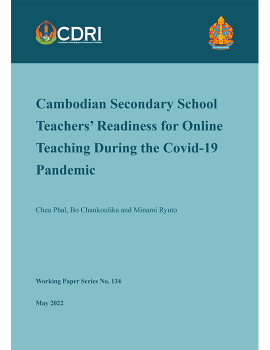
Cambodian Secondary School Teachers’ Readiness for Online Teaching During the Covid-19 Pandemic
This study investigates Cambodian secondary school teachers’ readiness for online teaching during the COVID-19 pandemic and identifies factors influencing their technological preparedness. Drawing on survey data from 687 teachers across 43 schools in 10 provinces, the study applies descriptive statistics and regression analysis using the Technologi...
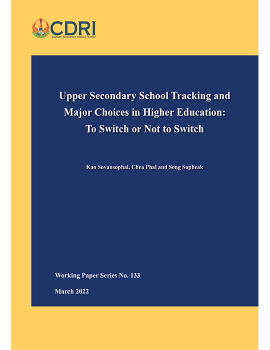
Upper Secondary School Tracking and Major Choices in Higher Education: To Switch or Not to Switch
This study explores the phenomenon of academic major switching among Cambodian students transitioning from upper secondary school to higher education. Despite a high proportion of students enrolling in the science track at secondary level, only a minority pursue STEM majors at university. Using survey data from 1,338 students across 21 higher educa...
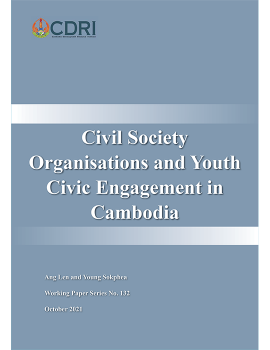
Civil Society Organisations and Youth Civic Engagement in Cambodia
This working paper explores the evolving role of civil society organisations (CSOs) in promoting youth civic engagement in Cambodia amid shifting political dynamics following the 2013 national election. Drawing on qualitative data from three provinces and Phnom Penh, the study examines the strategies of three distinct organisations—an international...
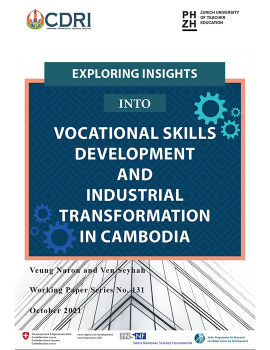
Exploring Insights into Vocational Skills Development and Industrial Transformation in Cambodia
This study investigates the relationship between vocational skills development (VSD) and industrial transformation in Cambodia, focusing on employers’ perspectives across the electrical and electronic (E&E), garment, and food processing sectors. Drawing on qualitative interviews with 36 managers and production heads from 18 companies, the research...
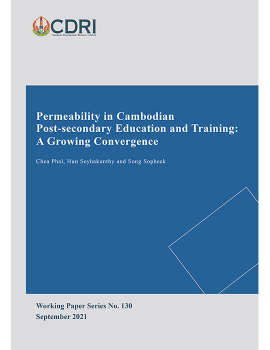
Permeability in Cambodian Post-secondary Education and Training: A Growing Convergence
This study explores the permeability between Cambodia’s post-secondary technical and vocational education and training (TVET) and academic higher education systems. Permeability refers to the ability of learners to transfer across educational tracks and qualification levels, promoting lifelong learning and social inclusion. Drawing on interviews wi...
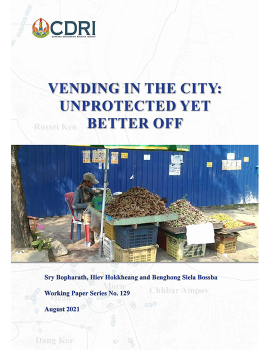
Vending in the City: Unprotected Yet Better Off
Street food vending is a vital part of the urban economy, and the poor, in particular, rely on it to earn their living. We examine their socio-economic dimension, especially their backgrounds and business operations and challenges, as well as the perspectives on life satisfaction among different income earners. Importantly, we looked at the margina...
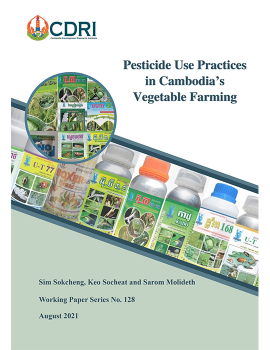
Pesticide Use Practices in Cambodia’s Vegetable Farming
Pesticides are agricultural technologies that farmers use to control pests and weeds and remain an important modern input for crop production including vegetable farming. There are many types of pesticides, such as insecticides, fungicides, rodenticides and herbicides, that target different threats to crops. While the potential production benefits...
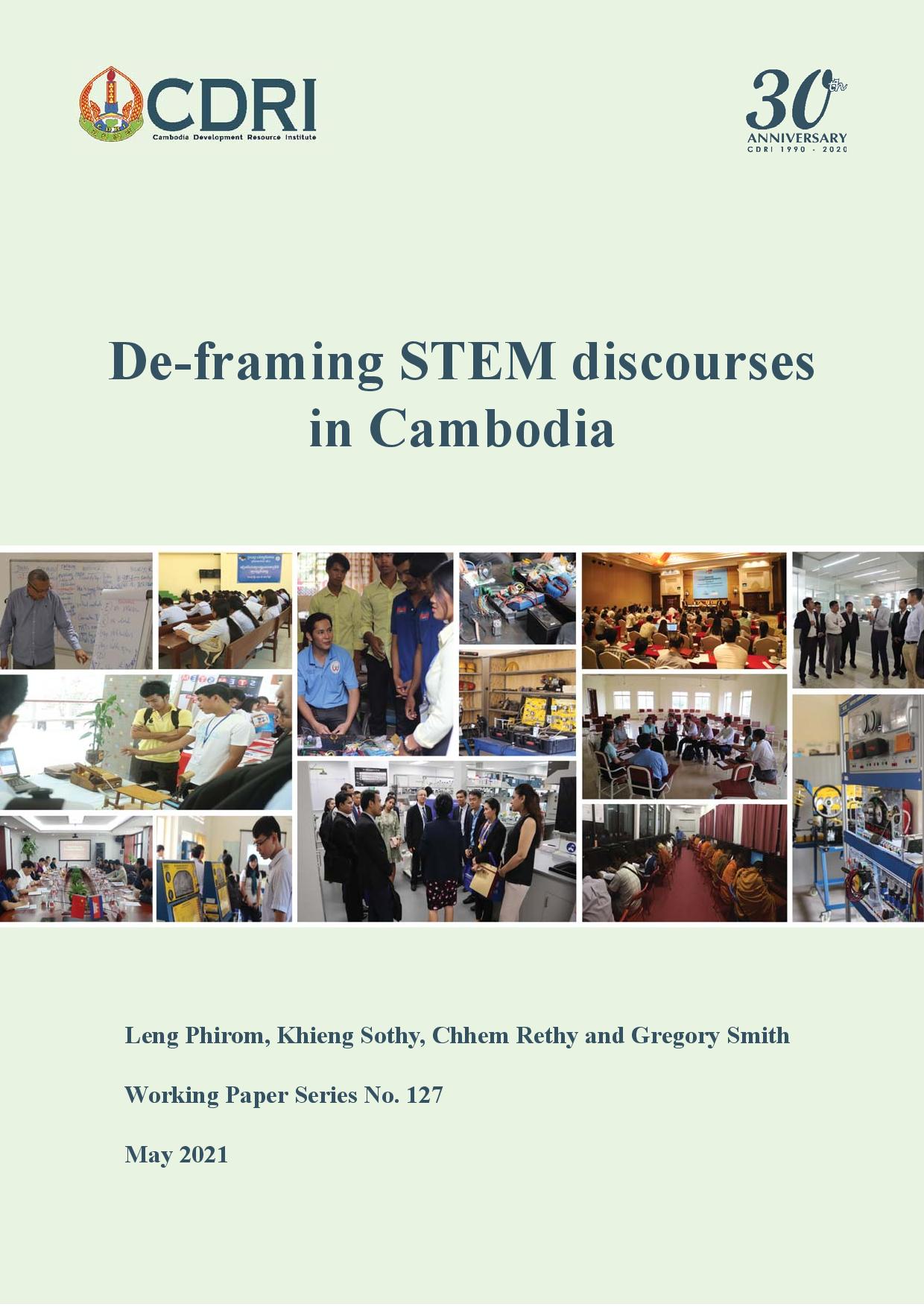
De-framing STEM Discourses in Cambodia
This qualitative study examines the development of STEM programs in Cambodian higher education, using as its theoretical framework Chesky and Wolfmeyer’s (2015) concept of an integrative STEM education, which highlights the intersections between purpose, pedagogy and content. The teaching of STEM in Cambodia remains discipline-based, dominated by t...
